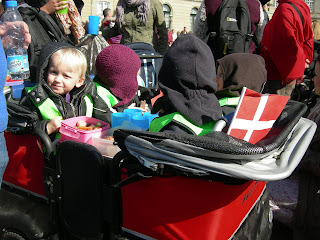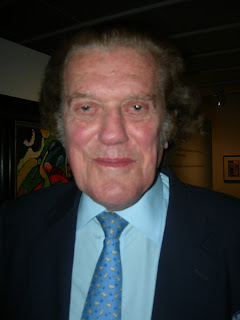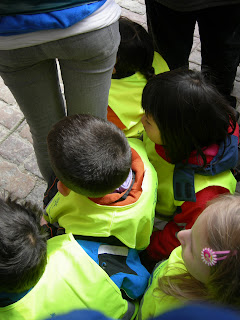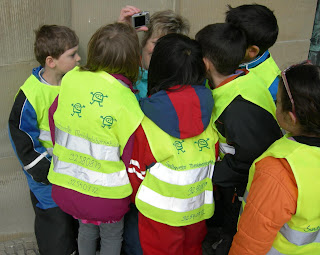Thursday, 29 April 2010
It's the Economy...
Historic Visit by Mr. Gazprom
The Reform Parties Are Back
For further information, please see:
http://www.dr.dk/Nyheder/Politik/2010/04/29/074916.htm
http://politiken.dk/politik/article959738.ece
http://www.berlingske.dk/politik/s-sf-og-r-kraever-oekonomiske-reformer-1
Sorry Seems to Be...
For further information, please see:
http://news.bbc.co.uk/2/hi/uk_news/politics/election_2010/8650546.stm
http://ukelection.blogs.cnn.com/2010/04/28/why-browns-gaffe-could-get-worse/?hpt=C2
http://www.guardian.co.uk/politics/2010/apr/28/gordon-brown-penitent-bigot-gaffe-campaign
http://politiken.dk/udland/article959602.ece
Wednesday, 28 April 2010
Meta-Comment No. 21
Sunday, 25 April 2010
Bridging Gaps & Uniting Differences
Villy Søvndal himself confirmed to PN that this new line was strictly in order to make the party fit for government. And for this purpose the country management team had to be strengthened, leaving less to endless debates as is the tradition within the party. Ole Sohn, group leader at Christiansborg, now financial spokesperson for the party - and a former member of the Communist party - paradoxically stressed the new line of co-operation with private companies in the less populated areas to bring back economic growth and ensuring livelyhoods in these areas. Mainly through investments in education and job creation within the health care, energy and environment areas.
Member of the parliamentary presidium, spokesperson for defence issues, and formerly party leader - Holger K. Nielsen found that the party had always bridged very far, and fully supported the new line in order to go for government power. Several party members around the country and Christiansborg parliament members supported the new bridging line, but also stressed the need for continued focus on the poor and weak people in all areas of the country - not just in sparsely populated outskirts of the country. Among them spokesperson for social issues, Özlem Cekic. But also she supported the new party line.
An election was carried out to form a new country management team. PN asked around among the delegates and members on election, and the opinions varied much. Some found that a professionalised management of less than twenty people would ease the decision making process over the classic board of close to forty people and an elaborate local committee system. One former country board member stressed the need for a professional election of people for the country management team consisting of all kinds of representatives, all parts of the country, male-female, and most importantly stressed the need for participants from various counselling organs, NGO's, and other political interest groups. And others found that this very part of the change would damage the democratic process within the party, and leave a huge gap and a top-down decision making process.
Still, all members found that these complications were subject to heading for actual decision making power - as a government party. Paradoxically the smell of power is sweet, even to the protesters by definition.
Friday, 23 April 2010
UK Election Race Narrowing

After the second televised debate on Thursday in Bristol between Labour/Brown, Conservatives/Cameron, and Liberals/Clegg - it had to happen, and it happened: Clegg lost momentum, as experienced Brown stepped it up on foreign policy and heavier issues, advocating for substance over style. Although Clegg still came out on top with a 33 percent support versus app. 29 percent to each of Brown and Cameron, according to an ICM poll.
The race between these three major British political parties hasn't been this close since 1985-86, with about 29-35 percent to each of the parties, only with mild fluctuations between them over the mid-80'ies. After which Labour took the lead in the 90'ies, with 40-50 percent support during the Tony Blair years. And later, after 2007, the Conservatives with an approximate 40-45 percent support.
If this narrow race continues, we could see a situation called a 'Hung Parliament' which means that neither party will win convincingly, and would have to rely on a coalition of parties to form government.
For further information, please see:
http://news.bbc.co.uk/2/hi/uk_news/politics/election_2010/8635098.stm
http://www.guardian.co.uk/politics/2010/apr/23/opinion-poll-nick-clegg-victory
Saturday, 17 April 2010
UK Election in Progress
Danish opposition leader Helle Thorning-Schmidt (A), a Social Democrat, knows him from this role, speaks positively of him, and describes him as an eager European Union supporter. However, this very fact may also be one of his disadvantages with the British electorate, most of whom have less than luke warm feelings towards the union. Let's see how he will do when the debates continue next week over foreign policy among other issues.
For further information, please see:
http://www.guardian.co.uk/politics/person/8485/nick-clegg
http://www.guardian.co.uk/news/datablog/2009/oct/21/icm-poll-data-labour-conservatives
Royal Birthday - Part Three
Later on Friday 16th April at Fredensborg Castle, before the private birthday dinner of Her Majesty Queen Margrethe II's dinner for Royal family members of Europe and a host of other guests, there were several shifts of The Royal Guard.
One fascinating little event was when smaller groups of guards in red and blue ceremonial uniforms left their tiny cafeteria and kitchen with little bundles of army dress under their arms. This, I was told, was for one very practical reason:
The red-blue uniforms are made of thick and tender wool. And for dry clean reasons, they are not to be messed with - say, with stains of grease or the smell of food. So every time the guards enter the kitchen house, they make a shift of clothes from ceremonial outfit to regular camouflage army wear. And back again after the last bite. Leaving an odd little scene of guards with bundled packages of clothes under their arms for the waiting crowds. I'll make a note of that practice for my next shift before eating.
Royal Birthday - Part Two
 No sooner had The Danish Royal Guard marched in front of Her Majesty Queen Margrethe II's mansion, before cheering crowds of people stormed the now empty space in front of the balcony for an optimal view, when The Queen came out on the balcony to greet her visitors - with her closest family, Prince Consort Henrik, Crown Prince Frederik X and Crown Princess Mary from Tasmania/Australia, Prince Joachim and Princess Marie from France - and all of her grand children.
No sooner had The Danish Royal Guard marched in front of Her Majesty Queen Margrethe II's mansion, before cheering crowds of people stormed the now empty space in front of the balcony for an optimal view, when The Queen came out on the balcony to greet her visitors - with her closest family, Prince Consort Henrik, Crown Prince Frederik X and Crown Princess Mary from Tasmania/Australia, Prince Joachim and Princess Marie from France - and all of her grand children.
As one woman in the crowd noted, 'I once shook the hand of Bill Clinton during his visit - but the Americans don't really have this kind of ceremony, do they?' To which her husband noted, 'I don't know about that, after shaking Clinton's hand she didn't wash her hand for several weeks, and she hasn't been quite herself since then either.'
Her Majesty Queen Margrethe II and Prince Consort Henrik leaving Amalienborg in horse driven coach.
Royal Birthday - Part One
 Nothing beats having your own private guard, does it? The Danish Royal Guard marched before Her Majesty Queen Margrethe II opened her balcony doors to greet and be greeted by her visitors at noon on 16th April of her 70th birthday at the square of Amalienborg Palace.
Nothing beats having your own private guard, does it? The Danish Royal Guard marched before Her Majesty Queen Margrethe II opened her balcony doors to greet and be greeted by her visitors at noon on 16th April of her 70th birthday at the square of Amalienborg Palace. Children, grown ups, French, German, Italian, British, Spanish, Norwegian, Swedish, Russian, Canadian, Japanese - flag waving, ice cream eating, coffee drinking - crowds of tens of thousands of visitors had come to salute the Queen on her birthday.
Children, grown ups, French, German, Italian, British, Spanish, Norwegian, Swedish, Russian, Canadian, Japanese - flag waving, ice cream eating, coffee drinking - crowds of tens of thousands of visitors had come to salute the Queen on her birthday. Some young visitors had even brought their own - almost royal - coach. And spent the long wait for the Queen having a sunshine picnic.
Some young visitors had even brought their own - almost royal - coach. And spent the long wait for the Queen having a sunshine picnic.
Monday, 12 April 2010
Bibi & Obama - A Love Story
Sunday, 11 April 2010
Collection of Colours
 Colour in Art is the aptly named exhibition of colourful paintings at Louisiana Museum of Modern Art to the North of Copenhagen. Some 150 paintings by 72 artists. Among the very noteworthy: Matisse, Nolde, Monet, Kandinsky, Picasso, Klein, Miró, Hockney, Toulouse-Lautrec, Klee, Itten, Kirchner, Müller, Münter, Malevitj.
Colour in Art is the aptly named exhibition of colourful paintings at Louisiana Museum of Modern Art to the North of Copenhagen. Some 150 paintings by 72 artists. Among the very noteworthy: Matisse, Nolde, Monet, Kandinsky, Picasso, Klein, Miró, Hockney, Toulouse-Lautrec, Klee, Itten, Kirchner, Müller, Münter, Malevitj.Most of the paintings come from the Merzbacher Kunststiftung, by Werner & Gabrielle Merzbacher. The exhibition also showed a film about Werner Merzbacher's Jewish background, being a Holocaust survivor. And it really impresses to think that - with this background in mind - he has dedicated his life to collecting very colourful - life confirming - paintings. As if to stress the antithesis to the World War II events.
 I was fortunate to meet Werner Merzbacher himself visiting the museum on 11th April, during Yom HaShoah, which is also known as Holocaust Remembrance Day. And was too flabbergasted and pressed by his short time in the museum to set up a real interview, as he joined a group of fur traders (his own profession and foundation for being able to collect all these paintings). But he did explain that he was there to see the extension to his collection with Louisiana's own modern, colourful paintings from the permanent collection.
I was fortunate to meet Werner Merzbacher himself visiting the museum on 11th April, during Yom HaShoah, which is also known as Holocaust Remembrance Day. And was too flabbergasted and pressed by his short time in the museum to set up a real interview, as he joined a group of fur traders (his own profession and foundation for being able to collect all these paintings). But he did explain that he was there to see the extension to his collection with Louisiana's own modern, colourful paintings from the permanent collection. For further information, please see:
Friday, 9 April 2010
Royal Press Conference
 Yesterday I was in luck to attend a press conference at the private Royal residence of Fredensborg to the North of Copenhagen in connection with the 70th birthday of Her Majesty Queen Margrethe II on 16th April.
Yesterday I was in luck to attend a press conference at the private Royal residence of Fredensborg to the North of Copenhagen in connection with the 70th birthday of Her Majesty Queen Margrethe II on 16th April.The press conference was also represented by Prince Consort Henrik for a photo op, while leaving the questions to Her Majesty to deal with. And there was enough to deal with, being asked as varied questions as to sum up her life and work, to comment on world affairs and relations with the Russian President. Questions about modern day Royal life compared to Danish sociatal changes. And was asked to show a good example and not smoke (as she has for most of her life). In Denmark, the regent is more of a ceremonial figure who performs representative tasks and attends official arrangements.
The queen was not shaken - barely stirred - but took all questions and critical hits as they came in. Some with serious and well thought responses. Some with witty remarks. And some with shots from the hip. And by the way - she is not about to stop smoking, even turning 70. So there.
PN managed to get one question through the rain of media questions - what profile she has and is most often revered for as viewed by the Royal family themselves. Compared to the Crown Prince. She mostly stressed the change in generation and gender between them, and the many-facetted tasks that call on different sides of each of them. And commented that although they may appear very different, they have grown very close and can talk about everything.
For further information, please see:
http://kongehuset.dk/publish.php?dogtag=k_dk_familien_dronningen
http://en.wikipedia.org/wiki/Margrethe_II_of_Denmark
A Royal View from the Kerb
 A group of children had taken their kindergarten teacher for an excursion from suburbian Sundbyvester on the airport island of Amager to the Royal Palace of Amalienborg in Copenhagen to witness the opening of the Amalienborg Museum exhibition of Danish Queen Margrethe II's life and artistic works.
A group of children had taken their kindergarten teacher for an excursion from suburbian Sundbyvester on the airport island of Amager to the Royal Palace of Amalienborg in Copenhagen to witness the opening of the Amalienborg Museum exhibition of Danish Queen Margrethe II's life and artistic works.The international crowd of children represented the nations of Iceland, Korea, Lebanon, etc. - and the young correspondents took to the first line of the kerb for a better view of the event.

 The international correspondents witnessed first Crown Prince Frederik X and Crown Princess Mary arrive a little early. And later the Queen herself and the Prince Consort Henrik as they arrived last as tradition prescribes.
The international correspondents witnessed first Crown Prince Frederik X and Crown Princess Mary arrive a little early. And later the Queen herself and the Prince Consort Henrik as they arrived last as tradition prescribes.The exhibition is to mark the Regent's 70th birthday next week, and opens to the public from 8th April to 19th September in the Christian VIII mansion at Amalienborg. Not to be confused with the recently renovated and redecorated private Frederik VIII mansion of Crown Prince Frederik X and Crown Princess Mary, which is also open to the public in the period from 27th February to 30th May this year.
 The security clad correspondents later gathered around their kindergarten teacher and chief photographer for a brief editorial meeting to make a selection of favourite photos.
The security clad correspondents later gathered around their kindergarten teacher and chief photographer for a brief editorial meeting to make a selection of favourite photos.For further information, please see:
http://www.rosenborgslot.dk/asp/menu/menuPages/amalienborg.asp?countryID=1
In The Mind of The Beholder
For further information, please see:
http://journalisten.dk/taxonomy/term/4605
http://en.wikipedia.org/wiki/Titanic_(magazine)
Tuesday, 6 April 2010
UK Election Kick-Off
The Conservatives have gained momentum over Labour after three periods of Labour. But according to the most recent ICM poll mentioned by BBC World and The Guardian, the lead of Conservatives over Labour has diminished by four points only since last week to a 37 percent over 33 percent lead. With about 21 percent expected to go to the Liberals.
According to an interactive constituents' tracker in The Guardian, the predominant Labour areas are centered in the Greater London area and to the North of Britain, whereas Conservatives have a stronghold to the South. With scatters of Liberals playing around the whole country. Let's see how it goes.
For further information, please see:
http://edition.cnn.com/2010/WORLD/europe/04/06/britain.general.election/index.html?hpt=T1
http://www.guardian.co.uk/politics/blog/2010/apr/06/general-election-campaign-starts#start-of-comments
http://news.bbc.co.uk/2/hi/uk_news/politics/election_2010/8280050.stm
http://www.guardian.co.uk/politics/blog/2010/apr/06/general-election-campaign-starts#start-of-comments
Paradoxical Survival
Only to witness the most horrendous stories continue to unfold about the sexual abuse scandals of the Catholic Church. And now even implicating the Pope in a controversy between the Jewish and the Catholic religious societies. Can't it rest at least during Easter/Passover? Live and let live.
Paradoxical News is still fighting to get the news across, however paradoxical. But with working conditions of e-mail boxes and phone connections that only allow access to certain people and not others. And with whole audio segments being destroyed from my recorder after interviews (even when played at top sound level and eventhough the digital sound bars do in fact 'read' the recordings) - it is kind of hard to survive in the media business.
Some sources the edior-in-chief has tried to get into contact with about a zillion times, currently and withtin these past few years. Whether it be the chairman of the Danish regions, central sources in the defence scandal, Danish political commentators and analysts, or the bishop and leader of the Danish church - in connection with current news stories. So judging from the outcome in PN, it may look like the editor-in-chief is not really trying. But I can assure you that technical barriers are the real reason for the overall PN performance. And paradoxical survival.
Friday, 2 April 2010
Happy Easter/Passover!
 From its refurnished - if interrim - HQ Paradoxical News wishes all readers, followers, supporters, and friends the best possible Easter/Passover holidays! Hopefully these next few days the Bunny will bring as many chocolate eggs as you can stomach - and as joyous a spring beyond the sinister times as you can imagine.
From its refurnished - if interrim - HQ Paradoxical News wishes all readers, followers, supporters, and friends the best possible Easter/Passover holidays! Hopefully these next few days the Bunny will bring as many chocolate eggs as you can stomach - and as joyous a spring beyond the sinister times as you can imagine. The Anti-Social Socials
In Denmark, another study of 1113 Muslim respondents aged 15-30 from the beginning of 2010 in the report called House of War from The Danish School at Aarhus, carried out by researchers Marco Goli (associate professor at Metropol) and Shahamak Rezaei (associate professor at Roskilde University), describes radicalisation and splits Muslims residing in Denmark into four groups:
The Seculars (49,4 percent), the Fundamentalists (27 percent), the Rebellious (18 percent), and the Radicalised (5,6 percent). The first group being quiet Muslims integrated and integrating their faith into norms and laws of the country. The Fundamentalists as taking their faith deeply serious, but not by use of extreme measures. The Rebellious group as being simply lost and frustrated young Muslims who find an outlet for their frustrations in sympathy for militant islamist groups, but do not actually support militant actions. And then the last group of the Radicalised and militant Muslims, who use Islam as a vehicle for extreme and expressive measures.
Surprisingly, the ratio of the most radicalised groups is not found in the Copenhagen area, but in suburbs like Høje Taastrup West of Copenhagen, and in Kalundborg at the Northwestern tip of the island of Sealand. And with respect to their ethnic backgrounds, they are more likely of Somalian and Lebanese/Palestinian origin, than of Iranian/Iraqian origin. They are often born in either Denmark or 3rd country, other than country of origin.
They have no shortage of so-called 'economic capital', since overrepresented in high income groups. With respect to 'cultural capital', more often than other groups they have lower or medium education, rather than higher education. They have stronger attachments to local imams, and condemn muslims who convert to other religions. Although, paradoxically, they are underrepresented among the groups in longing for and visiting their countries of origin - the so-called Diaspora explanation.
The Radicalised are often singles, middle children in the family. But in contradiction to widespread perception, they are not solitude, but rather spend the same amount of time with friends, also cross-culturally with other Danes. They are very fluent in Danish. They also more frequently have ethnic Danish partners. So the study finds no evidence that the group of Radicalised have a shortage of so-called 'social capital' compared with the other three groups. As the CTA report confirms, they are also frequent social media users.
The House of War report does not conclude on the radicalisation process. It describes various factors. A yes and no verification, that is summed up in the double edged question: Do people become more radicalized because they go to the Mosque more often? Or do they go to the Mosque more often, because they submit a radical interpretation of Islam? A paradox a bit like the one about the hen and the egg.
So here's today's paradox for you. To be coined at Paradoxical News as The Anti-Social Socials Paradox: How come that basically social Muslims turn to highly anti-social measures?
For further information, please see:
http://www.pet.dk/upload/youtube_og_facebook_-_de_nye_radikaliseringsværktøjer.pdf
http://magenta.ruc.dk/isg/nyheder/30082295/doc/
You've Been Had
By tradition, April 1st has all the jesters come out to play. None more eagerly than media people. Sadly April 1st seems to continue all year round. If only the sex abuse scandals of the Catholic Church (in USA, in Ireland, in Denmark, or whereever) were part of the April 1st jests. If only the Israeli-Palestinian conflict was too. But hey, there's always next April 1st!
Paradoxical News has covered many paradoxical stories for more than eighteen months now. The stories keep pouring in. If only the funds did too. PN is a bit like the now abandoned bumble bee theory: it shouldn't be able to fly. Well, ladies and gentlemen: You've been had!